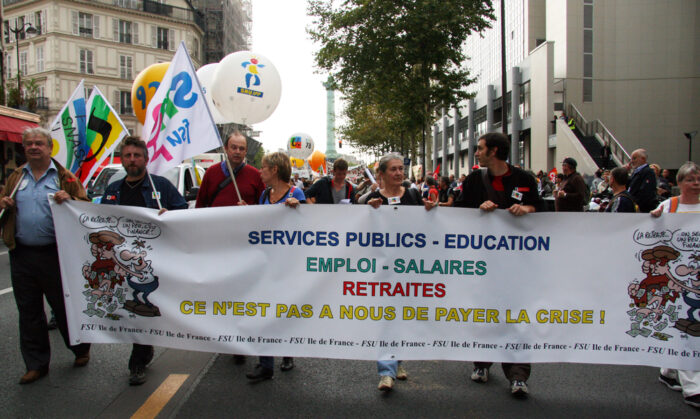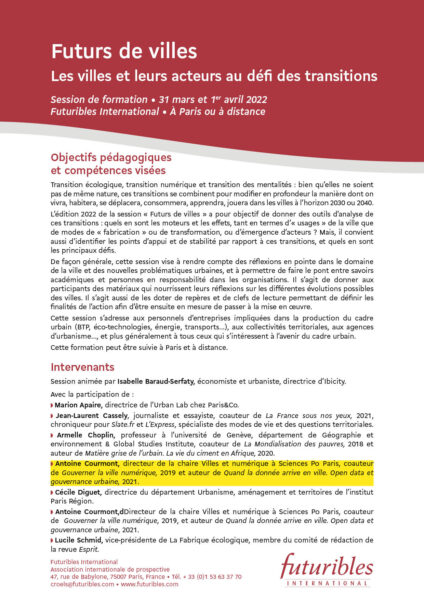In 1993, in a report to the French Senate on the economic and fiscal implications of the relocation abroad of manufacturing and services (L’Incidence économique et fiscale des délocalisations hors du territoire national des activités industrielles et de service. Paris: Senate, June 1993), Jean Arthuis expressed his concern about the impact of relocations on employment. His assessment then was deeply worrying: in 15 years, the domestic workforce in the sectors most affected by this trend (electronics, clothing and textiles, shoes) had been more than halved.
At the time, the report was presented by Arthuis in this journal (“Les délocalisations contre l’emploi. La sombre analyse du rapport Arthuis”, Futuribles, n°181, November 1993) and he intended to shock (“the house is on fire”, he wrote then). It proved to be prophetic in that he predicted the coming of the “second generation” of relocations that would affect services and intangibles.
Now indeed, 10 years later, the headlines of the European press continue to be full of news of closures of industrial plants while more and more foreign businesses are established in China, India or Eastern Europe, in high value-added sectors and research as well as basic manufacturing.
In this article, Jean Arthuis makes a gloomy assessment of the last 10 years: “the numbers of relocations have not stopped growing… Worse still, they have increased.” He adds, “all sectors of the economy are now affected”. Unlike those who like to think that this phenomenon is simply marginal, he argues that it is indeed a major trend but that something can be done to offset it. In his view, the solutions lie in reducing social security contributions and tax rates, in better economic coordination at European level, or in reforms of governance. In addition, he makes proposals for practical measures such as the creation of a “social” value-added tax and ecological taxation.
Une tendance lourde : les délocalisations
Cet article fait partie de la revue Futuribles n° 289, sept. 2003


